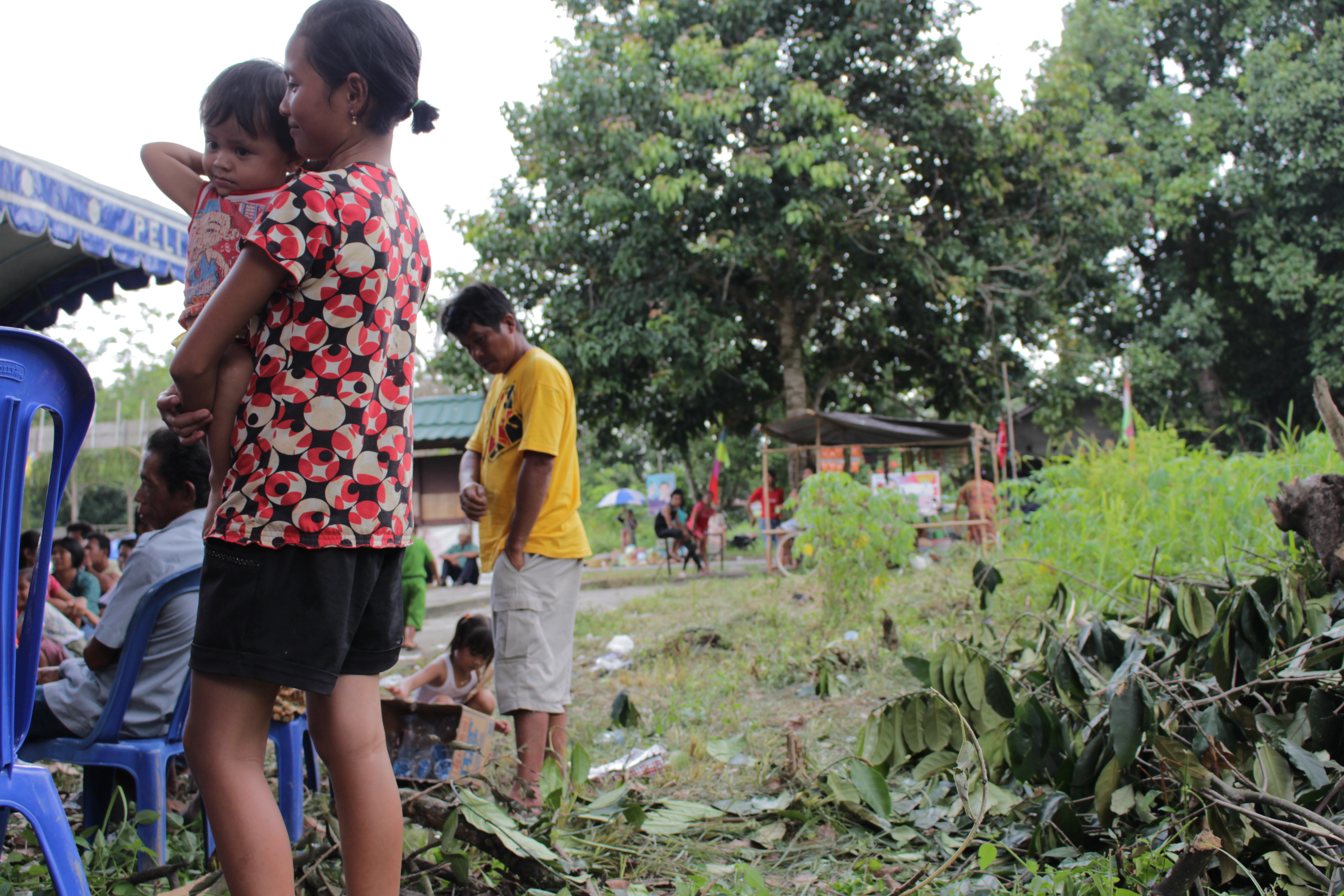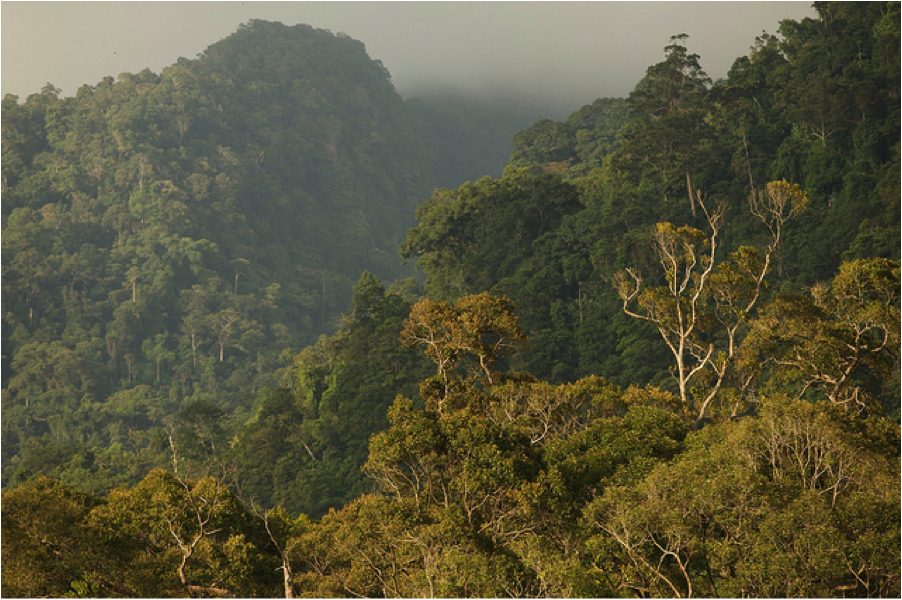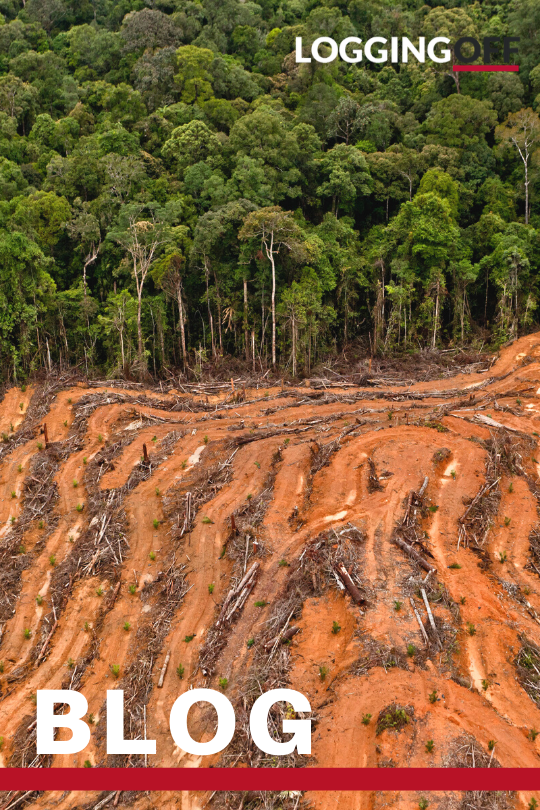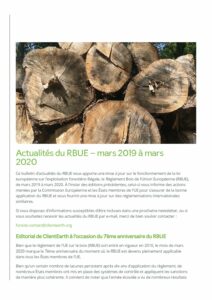Indonésie
Photo: Aulia Erlangga – CIFOR, Flickr/cc.
Les licences FLEGT ont commencé le 15 novembre 2016. En septembre 2018, le Réseau indonésien de surveillance forestière indépendante (JPIK) a apporté la preuve que du bois avait été abattu dans des zones protégées. Le mois suivant, le Rainforest Action Network fournissait des preuves d’illégalité, de destruction de l’environnement et de violations des droits des populations dans une enquête approfondie.
L’Indonésie est un des plus grands exportateurs de bois tropical, les forêts couvrent à peu près 60% de la surface du pays. Le pays exporte du contreplaqué, de la pâte à papier et du papier, des meubles et des objets artisanaux. Les principales destinations de ces exportations sont la Chine, l’Union Européenne, le Japon et la Korée.
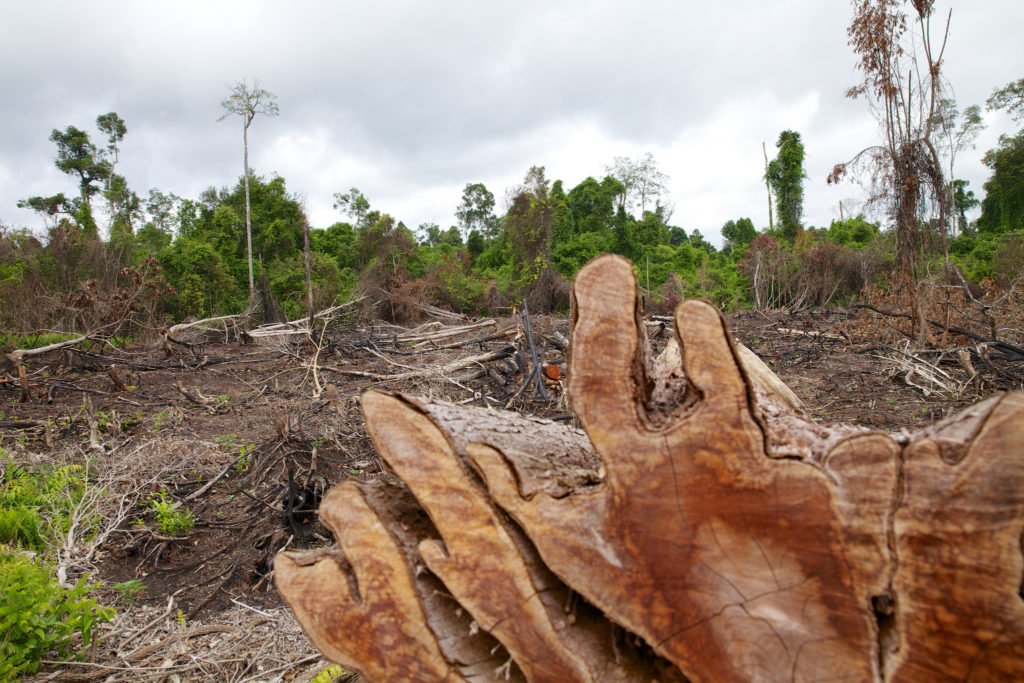
Dernière mise à jour de l'APV :
Des lacunes de plus en plus nombreuses apparaissent à mesure que l’Indonésie acquiert de l’expérience dans l’octroi des licences FLEGT. Les problèmes liés aux licences FLEGT doivent être pris au sérieux, comme dans le cas du merbau et du palissandre dans la région est de Java et de Makassar, dans la province de Sulawesi du Sud – des cas actuellement traités devant les tribunaux indonésiens. Le gouvernement doit poursuivre ses investigations afin de déterminer si le bois est destiné au marché européen.
En mars 2019, le gouvernement indonésien et la délégation de l’UE ont organisé une réunion conjointe d’experts (JEM) pour discuter de la progression de la mise en œuvre de l’APV FLEGT. Les progrès du plan d’action de 2018 et la planification de l’évaluation périodique (EP) de la mise en œuvre lancée fin mai 2019 figuraient parmi les sujets traités.
Profundo, la société de conseil choisie pour réaliser l’EP, le ministère de l’Environnement et des Forêts et l’équipe de l’EP, composée du gouvernement et de l’Institut forestier européen, ont organisé une consultation publique sur les activités que l’EP devrait couvrir (mai 2019). Plusieurs parties, dont le Réseau indonésien de surveillance indépendante des forêts (JPIK), ont contribué à cette consultation. Le JPIK a communiqué ses observations en ce qui concerne les aspects techniques et matériels de l’évaluation à l’équipe chargée de l’EP.
De manière générale, les performances du gouvernement se sont améliorées pour ce qui est de la mise en œuvre du système indonésien de vérification de la légalité du bois (SVLK), bien que plusieurs problèmes doivent encore être réglés, généralement en lien avec la transparence et l’application des lois. La volonté politique fait souvent défaut, tout comme les activités d’observation indépendante, dont l’efficacité dépend du bon vouloir du gouvernement.
Pour remédier aux lacunes de la mise en œuvre du SVLK, il faudrait augmenter la pression pour renforcer l’observation indépendante du marché (OIM), en utilisant des tendances au niveau du commerce pour évaluer les répercussions des APV, et opter pour une application et un respect plus stricts des dispositions du RBUE. À cet effet, l’UE pourrait créer des systèmes d’informations détaillées, comprenant une « ligne téléphonique de signalement » que les tiers pourraient appeler pour donner des informations sur le bois et les produits dérivés illégaux.
L’Indonésie ne devrait pas être la seule à s’attaquer aux problèmes de respect des normes et de légalité du bois : pour renforcer le SVLK et le RBUE, il convient également de disposer de mécanismes d’observation et d’exécution solides au sein de l’UE et des États membres, afin d’assurer le suivi des informations fournies par les organisations d’observation indépendante ou d’autres sources sur le bois illégal qui entre dans l’UE.
Une plus grande rigueur réglementaire du côté de la demande et une normalisation plus stricte de la part des autorités compétentes dans les États membres pourraient contribuer à lutter contre le « blanchiment de bois » via des pays tiers avant que le bois n’arrive sur le marché européen. Les informations sur l’application du RBUE dans les États membres pourraient être consolidées de sorte qu’elles puissent être contrôlées plus largement – et pas uniquement par les autorités. Les observateurs des forêts ont besoin de savoir que leur investissement personnel dans le processus vaut les risques encourus.
L’Indonésie et l’UE doivent élaborer un cadre d’application des lois plus efficace pour lutter contre le commerce illégal du bois, soit au travers d’une assistance juridique soit en tentant d’enrayer les pertes subies par les États en raison des infractions liées à l’exploitation forestière ou du commerce illégal du bois. L’UE se doit elle aussi de fournir des efforts constants pour améliorer et renforcer la bonne gouvernance forestière (et la durabilité, comme l’UE l’a indiqué lors de la dernière JEM) du secteur forestier indonésien.
Avant le SVLK, l’Indonésie n’avait pas pour habitude d’impliquer ses citoyens dans la prise de décisions, alors que la participation publique est aujourd’hui une évidence. Ce résultat peut servir d’exemple à d’autres initiatives. Bien que les processus FLEGT aient quelque peu changé les choses, le public et même les observateurs indépendants des forêts peuvent uniquement proposer des recommandations d’amélioration. La suite qui est donnée à ces recommandations est laissée à l’entière discrétion du gouvernement. La population indonésienne n’a toujours pas accès à certains types d’informations. En outre, des données sont souvent exclues ou considérées comme confidentielles, ce qui affecte la qualité de la participation des OSC. Ce phénomène se constate particulièrement en ce qui concerne la communication de données à des fins d’observation.
Dernière mise à jour datant de juillet 2019.
